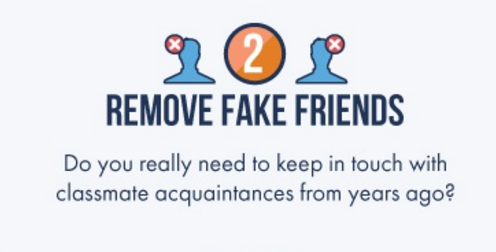It’s no secret that many entrepreneurs and those working at startups are workaholics — the average successful entrepreneur works 70 hours a week. Increasingly, however, companies are finding that working fewer hours can be advantageous when it comes to workplace efficiency. In fact, working just 40 hours (or less) might improve productivity even more than those 70 hour weeks.
History of the Monday – Friday work week
- In the early 1900s, the Ford Motor company was one of the first major businesses in America to introduce a 40-hour, Monday-Friday work week
- Up to that point, working six, 8-hour days per week was considered normal.
- Ford’s reason for the change was two-fold:
- His son Edsel was quoted in the New York Times saying, “We [the Ford Motor Company] believe that in order to live properly every man should have more time to spend with his family”
- Secondly, Henry Ford believed that well-paid workmen with more leisure time want more things, and thus buy more things (like Ford cars)
What is “Normal”?
Most can agree that working 9-5, Monday to Friday is “normal” for the average American employee, but what is considered a “normal” work week in other countries?
- US
- Hours per week: 47 hours
- Average annual salary: $44,888
- Netherlands
- Hours per week: 29
- Average annual salary: $47,000
- Denmark
- Hours per week: 33
- Average annual salary: $46,000
- Norway
- Hours per week: 33
- Average annual salary: $44,000
- Ireland
- Hours per week: 34
- Average annual salary: $51,000
- Germany
- Hours per week: 35
- Average annual salary: $40,000
Looking at the world’s shortest work weeks, it becomes clear that what’s “normal” is dependent on culture as much as everything else.
- In Japan, for example, death from overwork is such a problem they have a word for it: karoshi
US Companies That Encourage Working Less
These American companies are already exploring the idea of a shorter work week (or at least making sure no one works past 40 hours)
- Treehouse — An online education website that teaches coding and app design
- Work week: Mon-Thu, 9am-6pm, 32 hours a week
- Founded: 2011
- Worth: $10 million in yearly sales
- From Ryan Carson, cofounder of the company: “Thirty-two hours of higher quality work is better than 40 hours of lower quality work.”
- Basecamp — The company behind the Basecamp online collaboration and project management tool
- Work week: 32 hours a week from May through October
- Founded: 1999
- Worth: Basecamp doesn’t disclose revenues or profits, but both are in the millions
- From Jason Fried, founder of the company: “When there’s less time to work, you waste less time. When you have a compressed work week, you tend to focus on what’s important. Constraining time encourages quality time.”
- BambooHR — The company responsible for online HR management software
- Work week: 40 hours
- Founded: 2008
- Worth: $10 million in yearly revenue, as of February 2014
- To make the most out of their 40-hour weeks, the company teaches employees to:
- Limit interruptions like emails or meetings
- Use tele-meeting programs rather than meeting people in person
- Let clients know when they’ll be unavailable to make sure problems get solved on work time
Ways to implement shorter work weeks
There are many strategies for companies that want to implement a shorter work week. Here are a few to try:
- Four 10-hour days
- Pros: Still get 40 hours in per week and an extra day for the weekend
- Cons: Longer days mean more distractions
- The more hours an employee works, the more opportunities for distractions arise, leading to greater stress and frustration.
- Offset Schedules (some work Mon-Thu, others Tue-Fri)
- Pros: Someone is in the office every day of the week
- Cons: More difficult to communicate between people whose schedules don’t line up.
- 9-hour days, biweekly days off
- Pros: Most employees will be working the full week
- Cons: Scheduling days off (if they aren’t regular), can become problematic
Disadvantages to Shorter Work Weeks
There are a host of benefits to working shorter weeks, but it’s not for every company. Here are some reasons not to make the switch:
- Difficulty meeting customer needs
- The state of Utah went back to traditional Mon-Fri weeks after three years of 4-day weeks
- Residents complained that services weren’t available on certain days
- The state of Utah went back to traditional Mon-Fri weeks after three years of 4-day weeks
- Longer days
- For companies that choose to do 9 or 10 hour days, this can be physically and mentally draining for employees
- Attaining work-life balance
- Employees may find it difficult to compact five days of work into just four days
Benefits of a Shorter Work Week
The following benefits should tempt any company thinking about making the switch to shorter work weeks–especially startups, where every edge they can get on the competition can be the thing that makes or breaks their company:
- More efficiency
- Time the average worker wastes during an 8-hour shift: 2 hours
- Employees need to be more efficient to accomplish more work in less time
- Time the average worker wastes during an 8-hour shift: 2 hours
- Less time off
- State employees in Utah switched over to four, 10-hour days in 2009
- Employees took 9% less time off than in the past 2 years
- State employees in Utah switched over to four, 10-hour days in 2009
- Fewer sick days
- Employees can schedule doctor’s appointments during the week rather than miss work
- With fewer employees, startups can’t afford to lose any of them to illness
- Increased recruiting ability
- Working adults willing to give up at least part of their salary for increased work flexibility: 2 in 5
- A shorter work week can make it easier for startups to attract the perfect talent
- Energy savings
- The state of Utah switched to a shorter work week and cut energy costs by 13%
- Startups typically operate on thin budgets
- Keeping costs low will help keep them moving forward
- Happier employees
- Long weekends make employees happy, and happy employees:
- Are 33% more profitable
- Are 43% more productive
- Cause 50% fewer safety incidents
- Long weekends make employees happy, and happy employees:
- Lower environmental impact
- Fewer cars on the roads lead to:
- Reduced consumption of fossil fuels
- A smaller impact on global climate change
- Startups that care about the environment can benefit from a PR boost
- Fewer cars on the roads lead to:
“The harder we crowd business for time, the more efficient it becomes.” — Henry Ford
Sources
princetonreview.com, history.com, blog.pickcrew.com, scribd.com, geowords.com, redpepper.com, businessweek.com, boingboing.net, money.cnn.com, stats.oecd.org, inc.com, thinkprogress.org, bbc.com, growtheverywhere.com, ryancarson.com, lifehacker.com, crunchbase.com, qz.com, nytimes.com, fastcompany.com, quora.com, linkedin.com, bamboohr.com, inc.com, zoominfo.com, salon.com, npr.org, workoptions.com, america.aljazeera.com, cepr.com, ics.uci.edu, geowords.com
- The Princeton Review: Find a Career
- Ford Factory Workers Get 40-Hour Week
- The surprising reason we have a 40-hour work week
- Henry Ford on the Economic Value of Leisure
- HENRY FORD: Why I Favor Five Days’ Work With Six Days’ Pay
- National Average Wage Index
- Japanese workers fight against karoshi, death from overwork
- The Best Startup Perk: a 40 Hour Week
- Game industry exec celebrates 60+ hour work-weeks
- The “40-Hour” Workweek Is Actually Longer — by Seven Hours
- Worlds Shortest Work Weeks
- OECD: Average annual hours actually worked per worker
- This Company Has A 4-Day Work Week, Pays Its Workers A Full Salary And Is Super Successful
- Should the US adopt a shorter working week?
- Stop Working More Than 40 Hours a Week
- How Treehouse, An $8 Million Revenue Company Operates On A 4-Day Work Week And No Managers
- We work a 4-day week and just raised $4.75m
- I’m Ryan Carson, CEO of Treehouse, and This Is How I Work
- Treehouse Overview
- To grow your company and make millions, start working four days a week
- Be More Productive. Take Time Off.
- 37SIGNALS EARNS MILLIONS EACH YEAR. ITS CEO’S MODEL? HIS CLEANING LADY
- What is 37signals’s annual revenue?
- Bamboohr Careers
- Why This Startup Has a No-Workaholics Policy
- 5 reasons it’s time for a 4-day work week
- Utah Finds Surprising Benefits In 4-Day Workweek
- Compressed Work Week: Pros & Cons as a Flexible Work Arrangement
- Inside a company that works a 4-day week
- Reduced Work Hours as a Means of Slowing Climate Change (pdf)
- WHAT IF EVERY WEEKEND WAS THREE DAYS LONG? AT THESE COMPANIES IT IS
- HAPPINESS SECRETS FROM THE STAFF OF DELIVERING HAPPINESS AT WORK
- The Cost of Interrupted Work (pdf)
Original Source: WhoisHostingThis.com


















